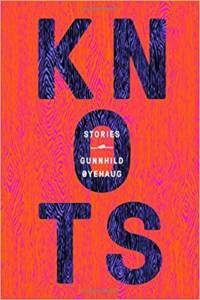Book by GUNNHILD ØYEHAUG (TRANSLATED BY KARI DICKSON)
Reviewed by OLGA ZILBERBOURG

It felt foreordained to open this short story collection by the Norwegian writer Gunnhild Øyehaug and find IKEA on the first page, as in: “…park the car outside IKEA.” IKEA, now based in the Netherlands, originated in Sweden, but to many foreigners, it personifies Scandinavia—pleasant and unthreatening. “Blah, how boring,” was my first thought. Then, trying to stave off disappointment at being welcomed by the all-too-familiar global brand, I told myself, “Well, I guess IKEA did start somewhere nearby. Perhaps, Scandinavians have a particular attachment to clean lines.” (Nervous laughter.) I know that stereotyping is a form of blindness; in practice, my desire for novelty trips me up and leads to overly broad generalizations. Like a tourist, I had to remind myself to check my expectations at the airport.















